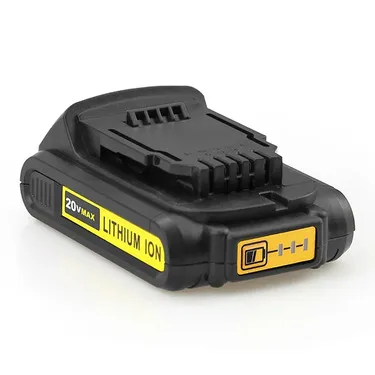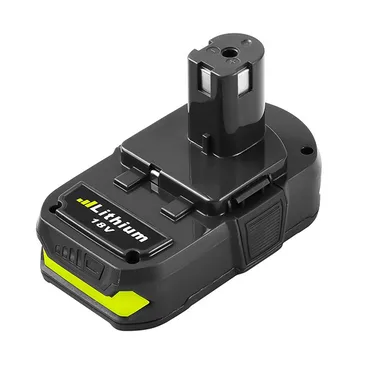Together for An Electric Future.
Lithium-ion batteries have become the backbone of modern electronics. Found in everything from smartphones and laptops to cordless power tools and electric vehicles (EVs), these batteries power a significant portion of our daily technology. Their widespread usage stems from their high energy density, longer lifespan, and rechargeability compared to older battery technologies like nickel-cadmium (NiCd) and nickel-metal hydride (NiMH) batteries.
Despite their popularity, many users are unaware of the best practices for maximizing the lifespan and performance of lithium-ion batteries. Improper usage can degrade them faster, leading to reduced efficiency and premature failure. Here are some effective ways to keep your lithium-ion batteries healthy and extend their overall lifespan.

Room temperature is key to ensuring the longevity of lithium-ion batteries. The ideal temperature for storing and using lithium-ion batteries is between 20 and 25 degrees Celsius (68°F to 77°F). Exposure to high temperatures, especially when the battery is fully charged, can severely degrade its performance.
Avoid leaving devices in hot environments: Never leave your smartphone, laptop, or any lithium-ion battery-powered device inside a car during hot weather. Temperatures inside a vehicle can soar, significantly reducing battery health.
Minimize charging at high temperatures: Charging a lithium-ion battery when it's exposed to excessive heat can increase internal resistance and degrade capacity over time. Ensure your devices are in cool environments during charging.
Heat is the most detrimental factor for lithium-ion batteries, causing irreversible capacity loss. Keeping batteries cool can significantly prolong their lifespan and prevent malfunctions.
Lithium-ion batteries prefer shallow charge cycles, meaning it’s best to avoid fully charging or discharging the battery. Here’s why:
Charging over 80% and discharging below 20% stresses the battery: Ideally, lithium-ion batteries perform best when kept between 20% and 80% charge. Allowing the battery to frequently drop to near-zero or be consistently charged to 100% can increase wear and tear, reducing overall efficiency.
Avoid overnight charging: While it may be convenient to charge your smartphone or laptop overnight, this practice can degrade battery life over time. Lithium-ion batteries continue to receive a "trickle charge" when plugged in past 100%, which keeps the battery under stress and accelerates wear.
Instead of charging to full capacity, try to unplug your devices when they reach around 80%, and avoid letting the charge drop below 20%. This approach is often referred to as the 80-20 rule, and it helps minimize the stress on lithium-ion cells, promoting longer battery life.
Moisture and lithium-ion batteries are a bad combination. Whether you're using cordless power tools in rainy weather or storing batteries in damp environments, exposure to moisture can cause significant damage. Here's why:
Risk of corrosion and short circuits: Moisture can corrode the battery terminals, making it difficult for the battery to charge efficiently. Additionally, water may seep into the battery housing, causing internal damage that could lead to short circuits or permanent failure.
Storage precautions: When storing lithium-ion batteries, make sure they are kept in dry and cool environments. If you're storing spare or backup batteries, consider using sealed plastic bags or specialized battery storage containers to protect them from humidity and moisture.
Always ensure that any device or battery that has been exposed to water is fully dried before attempting to charge or use it. If a battery has been submerged or shows visible signs of moisture damage, it's best to discard it safely according to local disposal guidelines for lithium-ion batteries.
If you're not planning to use your lithium-ion batteries for extended periods, proper storage and maintenance can prevent self-discharge and degradation. Here's how to keep inactive batteries in good shape:
Store at 40-60% charge: When storing batteries for long periods, ensure they are charged to between 40% and 60%. Storing at full or near-zero charge can degrade the cells and lead to loss of capacity over time.
Periodic charging: Even in storage, lithium-ion batteries experience self-discharge. Check the charge level every few months and recharge to 50-60% if necessary to prevent deep discharge.
By keeping batteries partially charged during storage, you'll help maintain their capacity and prevent issues that can occur due to prolonged periods of inactivity.
The cycle life of lithium-ion batteries is one of their key features. A typical lithium-ion battery can last for 300 to 500 full charge/discharge cycles, though some advanced batteries may last even longer. Each cycle refers to one complete charge from 0% to 100%.
Partial cycles: Lithium-ion batteries benefit from partial charge/discharge cycles rather than being regularly drained and recharged. This practice, combined with temperature management, can extend their usable life significantly.
Over time, all batteries experience natural degradation, but by following these tips, you can easily get 500-1000 cycles from a lithium-ion battery before significant capacity loss begins.

Lithium-ion batteries have revolutionized modern technology, offering high energy density, efficiency, and reliability. However, without proper care, their performance can degrade quickly. By maintaining optimal temperatures, avoiding full charge/discharge cycles, keeping batteries dry, and practicing safe storage, users can significantly prolong the lifespan of lithium-ion batteries.
Following these simple guidelines will help maximize the efficiency of your devices, tools, or electric vehicles powered by lithium-ion technology. If you need more information or specific guidance on maintaining lithium-ion batteries for your application, feel free to contact us for expert advice.